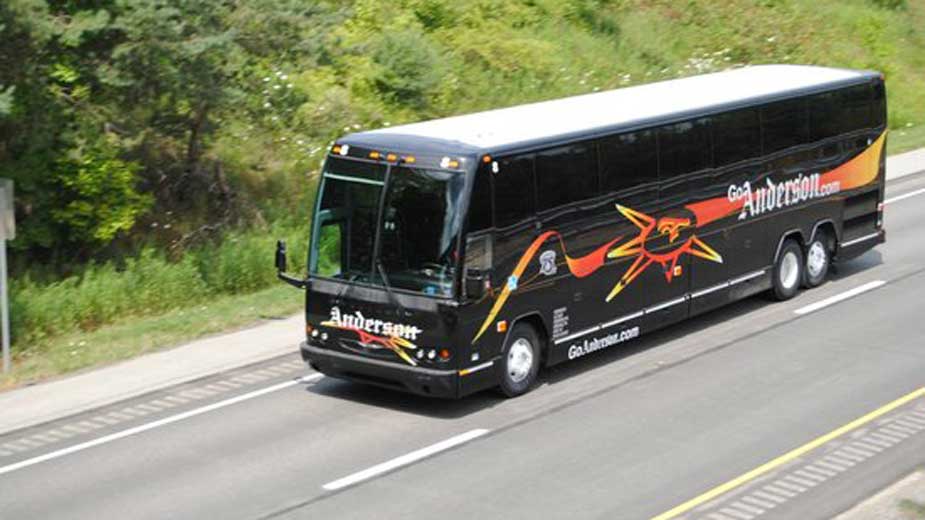‘Things Are Dismal at Best’ in Motor Coach Industry
YOUNGSTOWN, Ohio — In the weeks since Anderson Coach and Travel President Doug Anderson joined 400 of his colleagues in Washington, D.C., to advocate for relief for the industry, there’s been no sign that any will arrive soon.
“Things are dismal at best,” Anderson says.
While other travel industries, namely airlines and Amtrak, received $75 billion in funding through the federal coronavirus relief bills, the motor coach industry got none. And with travel essentially at a standstill, trade groups estimate that upward of 36,000 of buses are idled and 90% of the industry 100,000 workers have been laid off or furloughed. According to economists at the United Motorcoach Association, a five-month shutdown will cost the industry a collective $8 billion.
Normally at this time of year, Anderson says, his company, based in Greenville, Pa., would have its entire fleet of 40 vehicles on the road. Now, there are none.
“We’re in much the same plight – maybe even worse – as the airline industry. That industry relies heavily on business travel. There are still requirements that have people traveling for business, going long distances on regular schedules,” he says.
“Airlines can pick up one-offs and two-offs. Ours is all or nothing. Either the bus is chartered or it’s not chartered. Unfortunately, because of that, we have a parking lot full of buses.”
When Pennsylvania Gov. Tom Wolf signed the first shut-down order for the state, Anderson says he lost $6 million in bookings almost overnight. That business is unlikely to return until consumer confidence returns.
“When the tide turns, we feel that domestic travel will be more attractive than overseas or even something like going to the Caribbean,” Anderson says. “We just keep kicking the can down the road until there’s an uptick in business. We’re cautiously optimistic about September. We hope that college athletics might come back then.”
The only bookings Anderson Coach has right now are a few trips for Amish customers going on excursions to places like Niagara Falls, Anderson says, noting he’s told them that virtually all of the tourist attractions will be closed.
For trips that were canceled, the company worked to encourage customers to reschedule their trips, but was met with push-back, Anderson says.
“We’ve tried to get people to postpone. We’ve tried to get people to reschedule for the fall,” he says. “We allowed people that had cancellations and major deposits down who canceled within our usual cancellation period to push their deposit out for a year, hoping they have the confidence to take that trip next year.”
The cancellation of charter trips has also trickled into Anderson Coach’s retail division, which offers extra seats on chartered buses.
“When we had to cancel those trips, many of those customers are disappointed that they aren’t able to travel,” Anderson says. “Everybody’s getting cabin fever right now. But until those venues open up and there’s consumer confidence to travel, the opportunity for us to serve them is limited.”
The motor coach industry isn’t alone in taking a hit from the coronavirus. As one cog in the tourism machine, what’s happening to businesses like Anderson Coach is happening to plenty of others, Anderson says.
The American Bus Association, which co-organized the Washington, D.C., rally with the United Motorcoach Association, estimates that having no motor coach travel – which moves some 600 million people annually – would affect 2 million people and cost $237 billion in annual economic impact.
“What we’re experiencing is indicative of the entire travel and tour industry, whether it’s hospitality, hotels and even restaurants that are at half capacity having a tough time making any sort of rebound,” Anderson says.
Copyright 2024 The Business Journal, Youngstown, Ohio.



